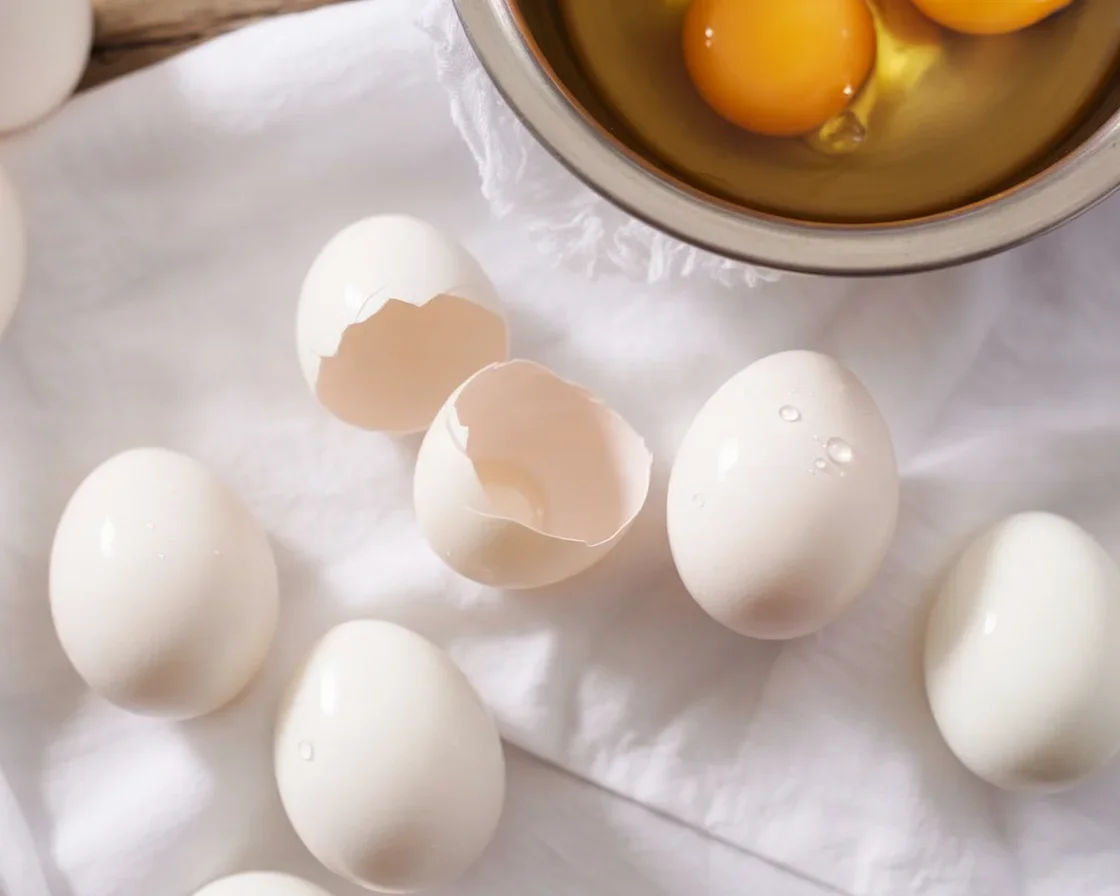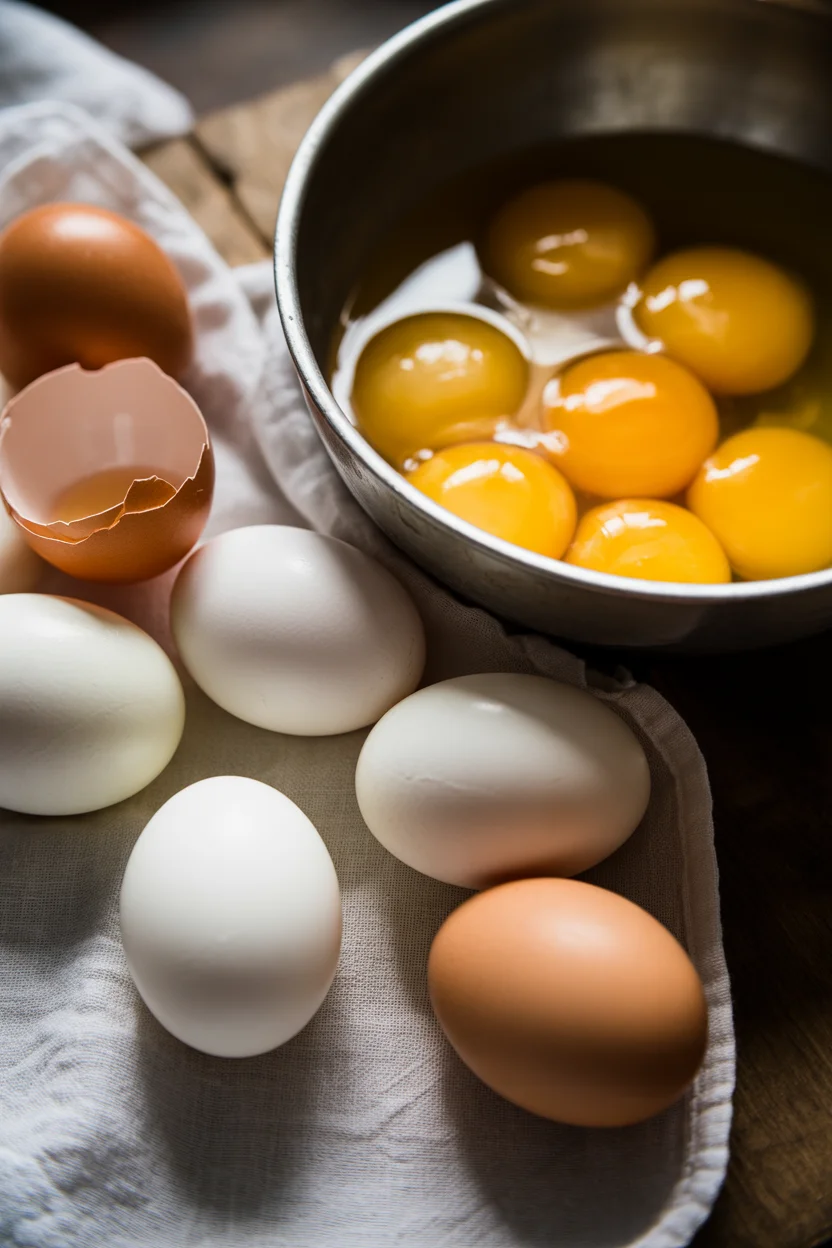Ever reached in the fridge for eggs and—whoops—realized you’d bought way more than you’ll ever use before the “use by” date gets rude? Oh, I’ve totally been there, especially right before a trip or after an overzealous Costco haul. Luckily, I figured out how to freeze eggs pretty quickly (after a not-so-glamorous scramble involving a leaky carton—yikes). Turns out, it’s way easier than you’d guess and honestly, it’ll save you money and stress down the road. If you hate wasting good food too, you might also want to check out ideas like how to create your perfect backyard layout or even go the veggie route with diy hydroponic lettuce systems. Let’s crack (ha, sorry) into all the eggy details.
Table of Contents
Why freeze eggs?
Okay, let’s unravel this: why on earth would you even think about freezing eggs? Honestly, the biggest reason is reducing food waste—and, if you ask me, saving money is a close second. Eggs can sneak up and expire fast. Maybe you got an amazing deal at the store (who can resist a buy-one-get-one?). Freezing eggs lets you enjoy them long after the date on the carton starts making you nervous.
Another bonus? Frozen eggs are crazy convenient. Need just one for a recipe and not in the mood to run to the shop in pyjama pants? If you plan a lot, like when pulling off garden projects or planning healthy meals, eggs in your freezer are right there. Oh and if you bake, you’ll love having the option to thaw however many you need. I honestly wish I’d known this trick years ago. 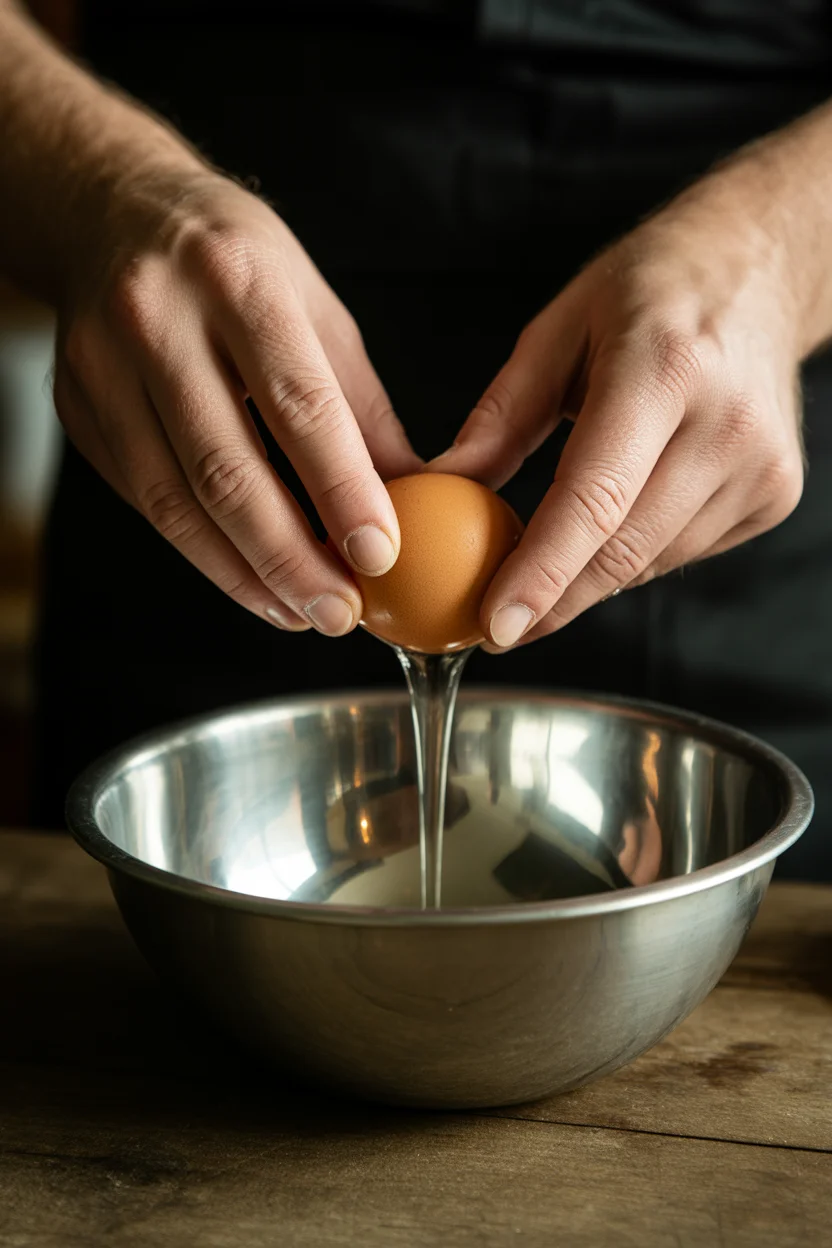
The best ways to freeze fresh eggs
Let’s get this out up front: putting whole eggs in the freezer, shells and all, is a hard no. They’ll crack, and then—well, it’s egg-cano in your freezer. The best thing is to crack your eggs first. Gently whisk them together in a bowl (just enough to blend yolks and whites, don’t go wild). Then you’ve got choices:
You can pour the mix into an ice cube tray if you want single servings. Or use freezer-safe containers (label with date… trust me, you’ll forget). For baking, I add a pinch of salt (if using for savory stuff) or sugar (sweet treats) to keep yolks from turning rubbery.
Here’s a quick table for handy reference:
| Step | Material | Tips | Best use |
|---|---|---|---|
| Crack and whisk | Bowl & fork | Don’t whip; just mix | All recipes |
| Portion | Ice cube tray, containers | Date & label | Single use or bulk |
| Add salt/sugar | Pinch per 4 eggs | For best consistency | Cooking or baking |
If you want to freeze only egg whites or yolks, go for it. Whites freeze perfectly alone (hello, lazy meringues). Yolks need a teeny bit of sugar or salt—else they’ll be weirdly jelly-like when thawed. 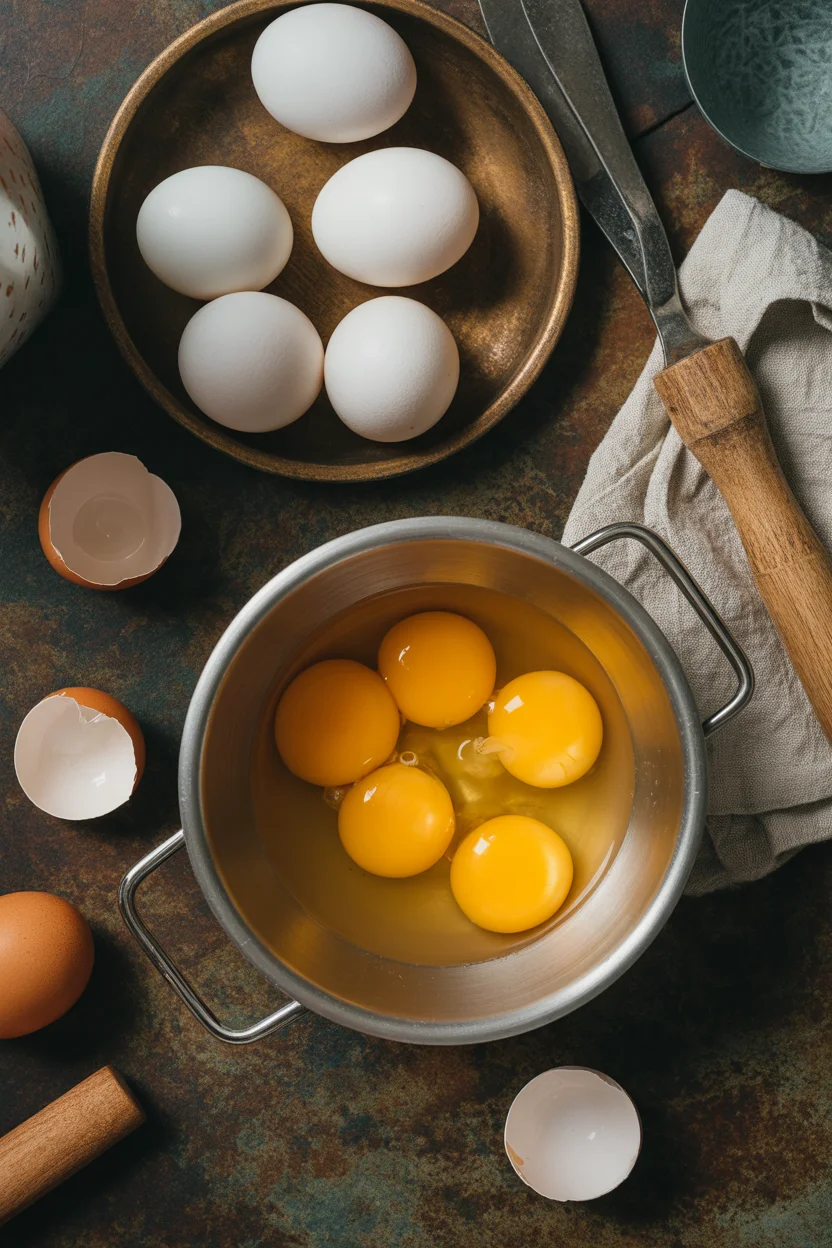
How to properly thaw frozen eggs
Alright, say you want to use your frozen eggs. Rule number one? Don’t nuke ’em or chuck them onto the counter and hope for the best. I absolutely ruined omelettes that way before I got the hang of it.
Put your frozen eggs (still in their container, obv.) in the fridge the night before you need them. Takes a few hours but keeps everything safe and the texture decent. In a rush? You can pop the sealed bag or container in a bowl of cold water for a quicker thaw—never use hot water, seriously, unless you like your eggs half-cooked and weird.
Once they’re liquidy again, just use them as you’d use fresh. But give them a sniff first—should still smell like normal eggs, nothing funky. 
Tips for using frozen eggs in recipes
If you’re new to this, let me spill what I wish I’d known sooner. Thawed eggs work best for scrambled eggs, omelettes, quiches, baking, muffins—things where precise texture isn’t everything. Don’t expect a picture-perfect fried egg, but hey, scrambled is nearly foolproof.
- For baking, remember to let eggs come to room temp after thawing (it mixes better).
- Don’t freeze cooked eggs (they turn… spongy).
- If you want to use just whites or yolks, mark the container when you freeze them.
- Add a dab of butter or splash of milk when scrambling frozen eggs for a fluffier texture.
Scrambled eggs from the freezer surprised me—my picky kid preferred them! Seriously. Weird, but true.
Common mistakes to avoid when freezing eggs
Oh boy—learned these the hard way (save yourself): do not freeze eggs in the shell. Unless you love cleaning cracked-egg disasters from freezer drawers. Always blend yolks and whites before freezing or the yolks get chunky and sad. Don’t forget to label the container if you use a bunch at once or save whites/yolks separately. And never thaw at room temp. Did that once for a quick cake—wound up with a funky smell and emergency kitchen cleaning.
One last random goof: don’t use cheap bags that leak. Go sturdy or go home.
Can you freeze raw eggs for later use?
Absolutely, yes! Raw eggs freeze way better than cooked ones—plus, it’s the easiest way to save leftovers if you made a double batch or found a killer egg deal at the store. Just crack, whisk, and freeze as above. Pro tip: I store them in small amounts for baking emergencies, like the time I accidentally promised cookies at the last minute to my kid’s class… again.
“We started freezing eggs during lockdown and honestly, it was a game changer! Never feel rushed to use up a dozen. Just pop what you need from the freezer into a quiche or breakfast bake.” – Riley D., actual freezer-egg convert
Do frozen eggs make good scrambled eggs?
Frankly, yes—they make dang tasty scrambled eggs if you do it right. The texture isn’t quite the same as just-cracked, but with a little milk and some cheese or herbs, no one’s complaining. My secret: let the mix settle after thawing, whisk again, then cook low and slow. Absolutely five-star restaurant? No, but close enough for Saturday brunch.
Taste testers at my house (including my Grandma), passed them without a second look, so that tells me a lot.
Can you freeze raw eggs in Ziploc bags?
You sure can, but here’s my straight-up advice: Ziploc bags need to be super sturdy and heavy-duty. Otherwise, they can puncture and leak, and, well, that’s gross. I like using them for smaller amounts since they thaw quickly (way handier than those huge containers). Lay them flat so they freeze as thin sheets—easy to snap off one portion at a time.
If you want more inspiration on storing or growing food in limited space, you might like how to grow food in 5-gallon buckets or even starting a hydroponic greenhouse in 5 days. Both have helped me hedge against grocery-store “surprises”.
Can you freeze eggs and then cook them?
Yes again. Actually, that’s the point! You freeze them, thaw them safely, and then use them however you like: quiche, cakes, scrambled, pancakes. I’ve never noticed a difference in taste in cooked recipes, and my family is picky (thanks, TikTok food videos). Just remember: don’t refreeze after cooking. That boat doesn’t float.
If you find yourself baking in bulk or meal-prepping, frozen eggs might just become your new favorite kitchen hack.
Your Next Kitchen Superpower
Freezing eggs is way easier than it sounds—plus, it’s a total game changer for busy weeks and saving food from the dreaded trash bin. Whisk, freeze, portion, and relax knowing you’ll always have eggs at hand—trust me, it’s as simple as that. If you want a step-by-step visual, check out How to Freeze Eggs, or for the official nitty-gritty, see the Freezing Eggs guide at the National Center for Home Food Preservation. Either way, give freezing eggs a shot next time you’re flush with extras—I swear, it’ll feel like unlocking a kitchen cheat code. 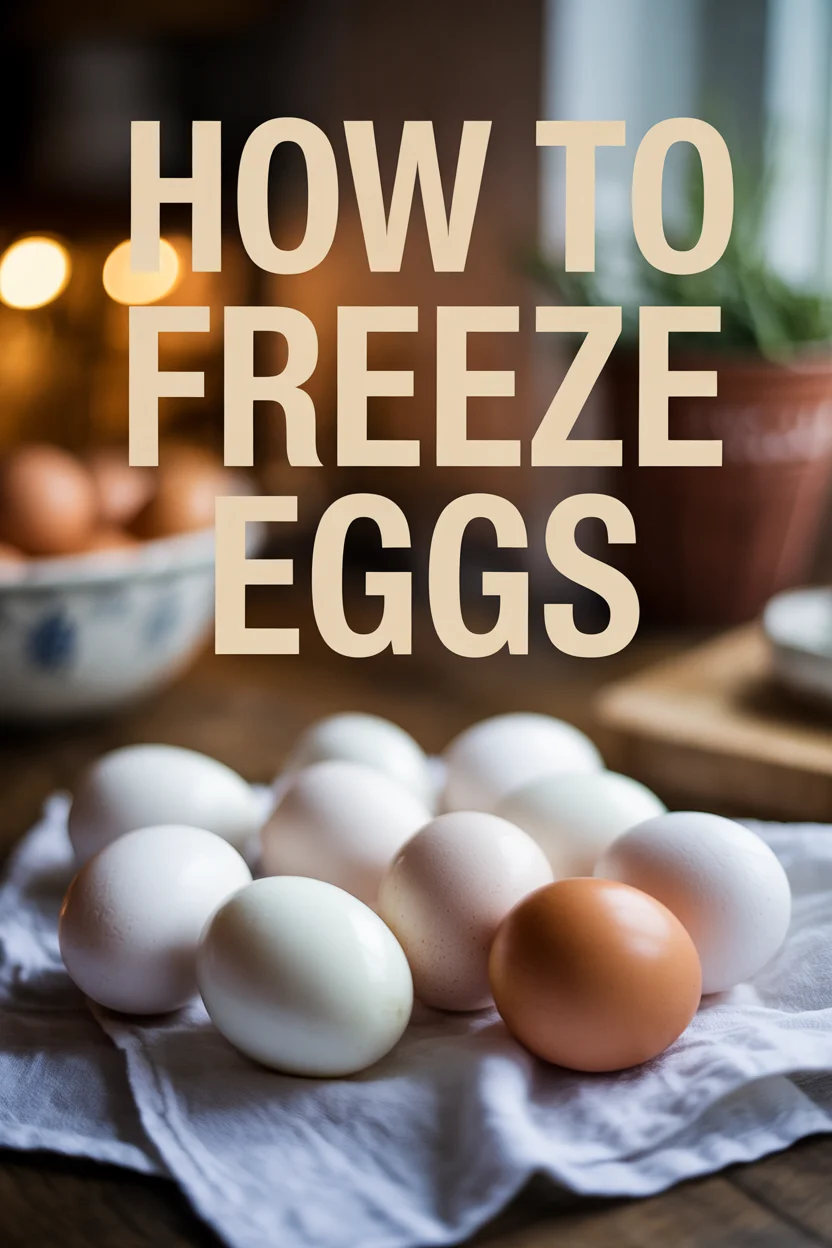
FAQ about How to Freeze Eggs
Can I freeze deviled eggs or hard-boiled eggs?
Not really. The whites turn rubbery and weirdly watery. Stick to raw eggs for freezing.
How long do frozen eggs last?
Up to a year, but honestly, aim for six months for the best texture. I set a reminder on my phone—otherwise, I forget.
Should I add salt or sugar every time?
Only if you’re separating yolks (prevents gelling). If freezing whole eggs for general use, it isn’t required but helps a touch.
Can I use frozen eggs in all recipes?
Almost! Baking, scrambling, casseroles—yes. Not fried or poached eggs, though; they get messy.
How do I know if my thawed eggs are still good?
If they smell normal and look fine, you’re good! If anything seems off (sour smell or weird color), toss them, no shame.
